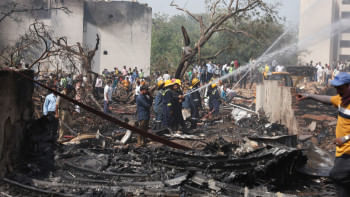Abdullah Abu Sayeed

With the dream of 'Alokito Manush Chai', Professor Abdullah Abu Sayeed launched a movement that played a transformative role in fostering a passion for reading and critical thinking in generations of young Bangladeshis. Born in Kolkata in 1939, Sayeed made a lasting impact not just as an educationist but also as a visionary writer, cultural activist, and progressive social reformer.
Professor Sayeed captivated the minds of hundreds and thousands of young students during his thirty years of teaching. He was the editor of the influential literary journal 'Kanthaswar' during the 60s, where he nurtured a generation of young poets and writers. He was also one of the most popular presenters on BTV in the 1970s, anchoring magazine programmes such as 'Saptabarna' and 'Anandamela'.
However, it is Sayeed's contributions to freedom of thought and expression that set him apart from others. Through his work, Sayeed sought to foster the love of reading in young people and expand their exposure to literature. With the assistance of the Ministry of Education, Sayeed's Enrichment and Development of Reading Habit Programme spread throughout Dhaka and eventually throughout Bangladesh. He also founded Bishwo Shahitto Kendro, or World Literature Centre in 1978. He launched the 'Bhrammoman Library' programme in 1998 to address the dearth of libraries in the country. Currently, the Bishwo Shahitto Kendro has a total of 22,00,000 registered members, while its mobile libraries serve a total of 330,000 people. Sayeed's literary work, which exceeds over 50 books, have also been instrumental in promoting progressive values.
Sayeed's commitment to promoting freedom of thought extends beyond his literary endeavours. He has been involved in environmental, public-health and anti-corruption movements, working with organisations such as Transparency International Bangladesh (TIB) and Bangladesh Poribesh Andolon (BAPA).
The Daily Star honours Abdullah Abu Sayeed as a trailblazer in promoting intellectual curiosity and freedom of thought, especially among the young people. Through his writings and activism, he has inspired and engaged millions of young minds to embrace freethinking and expand their world vision, leaving a lasting legacy that continues to shape the cultural landscape of Bangladesh.

 For all latest news, follow The Daily Star's Google News channel.
For all latest news, follow The Daily Star's Google News channel. 



Comments